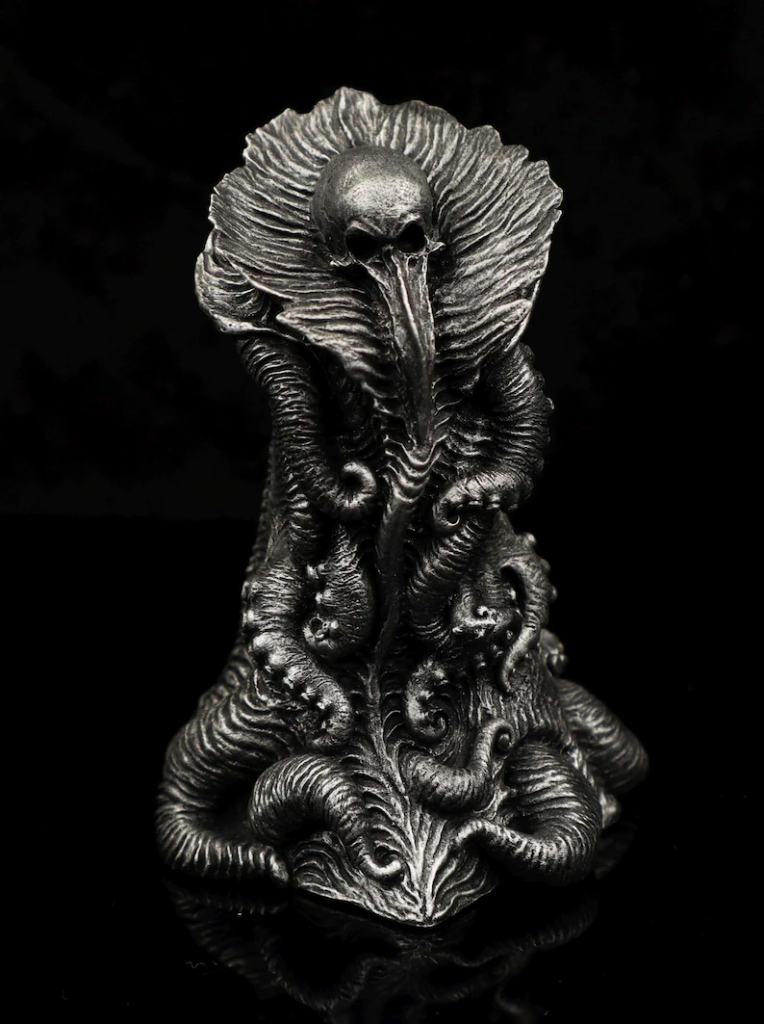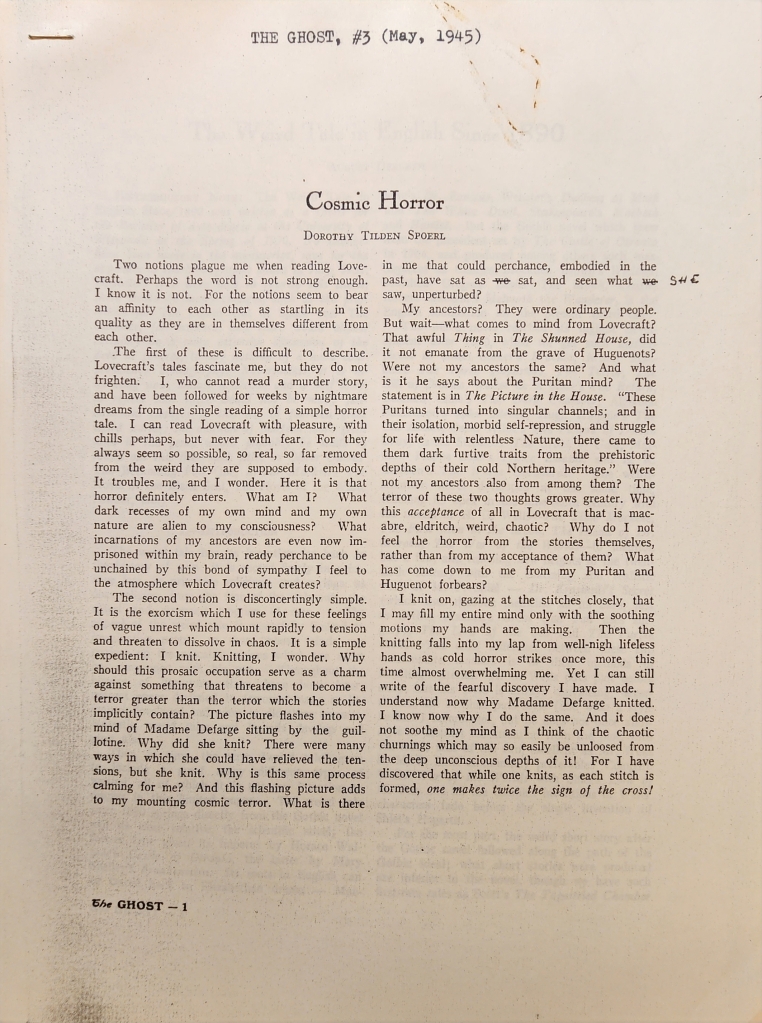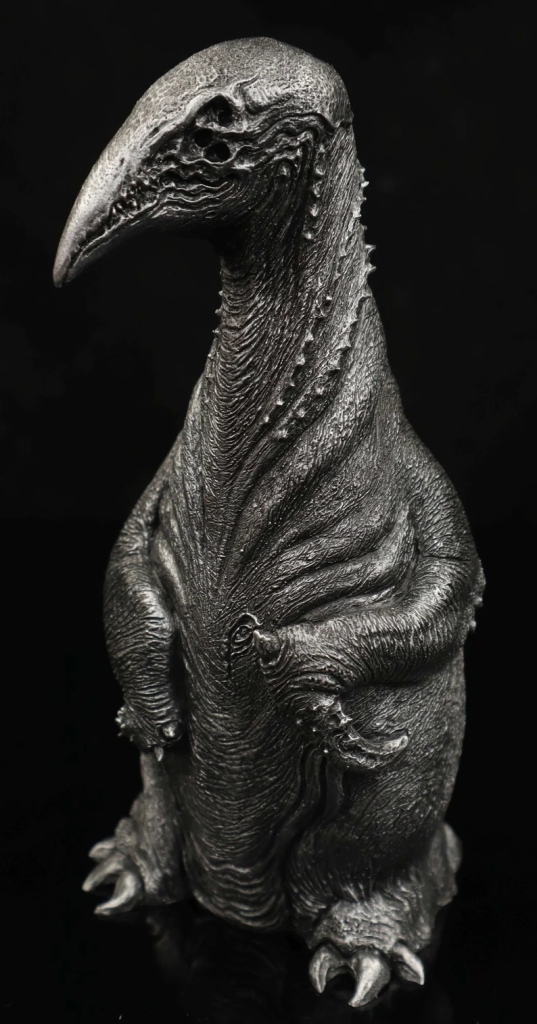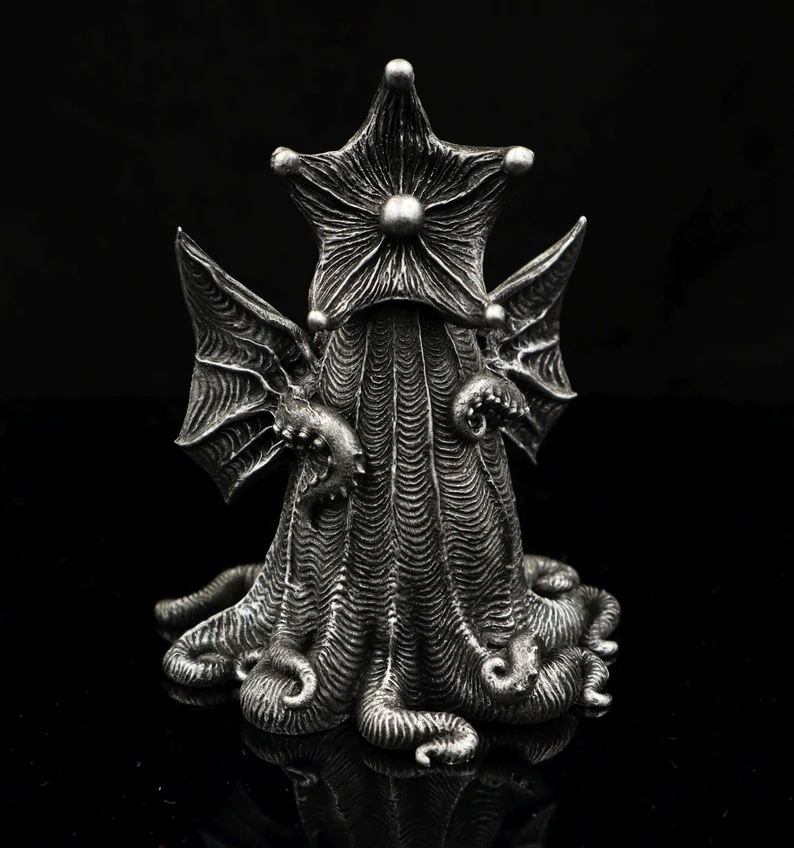by Cliff Hamrick
What is cosmic horror?
A superficial look at the sub-genre will show tentacled monsters lurking at the bottom of the deepest parts of the ocean and the crazed cultists that worship them. But further reading will show existential themes questioning free will and the significance of humanity. Spoiler alert: humanity, much less an individual human, isn’t significant at all.

The term “cosmic” horror relates to the idea that the creatures featured in stories of this sub-genre are often powerful aliens who seem more like gods than anything out of Close Encounters of the Third Kind. But cosmic horror is as much about inner space as it is about outer space with themes related to the human condition, otherness, consciousness, and self-determination.
Cosmic horror is one of the few genres of literature that can be traced back to a single individual: H. P. Lovecraft, which is why cosmic horror is sometimes referred to as Lovecraftian horror. To quote H. P. Lovecraft from the first paragraph of his short story “The Call of Cthulhu”:
“The most merciful thing in the world, I think, is the inability of the human mind to correlate all its contents. We live on a placid island of ignorance in the midst of black seas of infinity, and it was not meant that we should voyage far. The sciences, each straining in its own direction, have hitherto harmed us little; but some day the piecing together of dissociated knowledge will open up such terrifying vistas of reality, and of our frightful position therein, that we shall either go mad from the revelation or flee from the deadly light into the peace and safety of a new dark age.”
Themes
The themes found in cosmic horror have a bleak and pessimistic tone and seek to rob us of our sense of control and meaning.
The Unknown and the Unknowable
Lovecraft is famous for his ponderous language and refusal to describe the awful things he put in his stories, and contemporary authors of the genre like to follow in his footsteps. His use of dense writing with long, running sentences and archaic words such as eldritch, squamous, and Cyclopean was an homage to the authors of weird fiction that influenced him, namely Arthur Machen, Algernon Blackwood, and Robert W. Chambers.
His lack of description of the creatures or events in his stories, other than unnameable, blasphemous, or loathsome, lent to his belief that phenomena that are unknown, or unknowable are far more terrifying than anything that could be described easily. Two quotes from him sum up this idea best:
“The oldest and strongest emotion of mankind is fear, and the oldest and strongest kind of fear is the fear of the unknown.”
“Explain nothing.”
The Insignificance of Humanity
H. P. Lovecraft was a student of astronomy in the 1910s and 1920s, a new Golden Age of astronomy. This was a time of discoveries that we simply take for granted today. The idea that our solar system is just one of billions in a galaxy in an ever-expanding universe of countless galaxies is taught in middle school science classes around the world today. But back then, these were new concepts to a culture that was still rooted in the Biblical teachings of history. For instance, the Scopes Monkey trial which challenged a teacher’s ability to discuss Darwinian evolution was in 1925.
I believe these new discoveries, as well as his atheism, led Lovecraft to conclude that humanity can’t be special in the grand scheme of the universe, and therefore creatures far older and far more powerful than humans must exist. Perhaps some exist on Earth today…
Madness and Insanity
The themes of the unknowable as well as the insignificance of humanity carry through to the theme of insanity as the minds of the characters in the stories break from the strain of trying to understand that which the human brain is simply incapable of understanding. This is such an important theme to cosmic horror that it has carried over into other depictions of the genre. Any role-playing or video game that features anything remotely Lovecraftian must include some kind of system to show a character’s descent into madness through their experiences in order for it to be taken seriously by fans of the sub-genre.
Legacy
A common theme in cosmic horror is the notion of a familial line that carries down to the protagonist. Whether it is an unknown bloodline like in “The Shadow Over Innsmouth” or a collection of newspaper clippings leading to a global doomsday cult in “The Call of Cthulhu,” the protagonist is lead through a series of horrific encounters that have been determined before they were even born, questioning the whole notion of free will.
This theme most likely grew out of Lovecraft’s past. Both of his parents were mentally ill and spent at least some of their time in insane asylums. Considering his lifelong struggle with his own mental and physical ailments, he must have wondered how much of them were due to his family’s lineage.
Tropes
The Great Old Ones
This trope is so prevalent that it has also crept into the mainstream. The Great Old Ones, Elder Gods, Outer Gods, however they are named, are powerful alien beings who seem like deities to us. We might think of them as evil, but they don’t think of us at all. Their “evil” comes from their complete indifference to humanity. In some stories, the destruction brought on by the Great Old Ones is more of a side effect of their presence than any conscious act of malice on their part.
Fitting with the theme of the insignificance of humanity, there is nothing that humans can do to stop the inevitable rise of the Great Old Ones from their slumber and their annihilation of the world. The only thing saving humanity is that these great evils are hidden or locked away, saving us from the mind-shattering knowledge of their existence.
Cults
Despite the nihilistic indifference of the Great Old Ones, there is always a group of people who worship them. These cultists are usually insane, because only a crazy person would worship an alien being that is more likely to squish you like a bug than give any kind of blessing. Sometimes the cultists are global secret societies or sometimes localized into a small, remote area. There are also stories featuring just one person who has gained power from an ancient text or artifact, and desires more even if they don’t fully understand what that will cost them.
Cursed Objects
Sometimes evil isn’t a person, but a thing. Cosmic horror stories often feature an item that will corrupt the body or the mind of someone simply being exposed to it. Reading forbidden texts is the most common theme with the information hidden away inside unlocking the reader’s mind to terrible knowledge. Or, as in the case of the play The King in Yellow or the movie Cigarette Burns, a piece of art is created with the express purpose of driving people insane.
Things That Should Not Be
Creatures that do not fit into any evolutionary tree created on Earth or architecture that follows non-Euclidean geometry that bends the senses are also common features in cosmic horror. Oftentimes, just the sight of these Things is enough to shatter the common mind.
Examples of Cosmic Horror
Literature
Just about anything by H. P. Lovecraft, but a few stories stand out: At the Mountains of Madness, “From Beyond,” “The Colour Out of Space,” and “The Call of Cthulhu”
The King in Yellow by Robert W. Chambers
“The White People” and The Great God Pan by Arthur Machen
The Hyperborean Cycle by Clark Ashton Smith
“The Black Stone,” “The Children of the Night,” and “The Haunter of the Ring” by Robert E. Howard
Movies
In the Mouth of Madness
Cigarette Burns (from the Masters of Horror series)
Dagon
The Mist
The Void
The Thing
Annihilation

Cliff Hamrick, as well as being a counselor in private practice, is also an author. Follow this link (https://www.amazon.com/stores/Cliff-Hamrick/author/B081X9QZLC) to view his books that are available from Amazon.com.
(The Lovecraft inspired figurines used to illustrate this article are on sale at Etsy. Check their website.)
Bonus: A different take on “Cosmic Horror” from The Ghost #3, May 1945




An excellent introduction to Lovecraft and cosmic horror in general. Well done. You’ve inspired me to read works I’ve neglected too long, starting with The KinI Yellow.
That’s The King In Yellow. Stupid thumb.
Pingback: Sensor Sweep: Greynawk, Tanith Lee, Ron Cobb, Ahsoka – castaliahouse.com